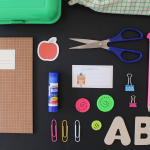
29 Sep What is School refusal?
Parents want to do everything they can to support their teen through high school, but they can stumble across common hurdles, such as study stress, procrastination and children wanting to change schools, as well as serious challenges such as school refusal, write Dr Ginni Mansberg and Jo Lamble
School refusal
Parents do need to liaise with the school over school refusal. If your child is waking up every morning and refusing to go to school because they feel sick or are overwhelmed with anxiety or depression, then don’t try to handle this on your own. It can be very distressing for parents when a teenager flatly refuses to go to school. They can beg and bribe and threaten their child because the consequences are so scary. But there needs to be a well-thought-out plan to deal with school refusal, because, as we’ve said before, teenagers vote with their feet. You can’t simply make them go to school; you need to help them go to school. And the sooner you do that the better.
Most importantly, the idea is to look into what is behind their school refusal. Dr Raphael Chan, a Sydney-based adolescent psychiatrist, says, ‘School refusal is another symptom or sign that they’re struggling with something’. Are they anxious or depressed? Are they being bullied or being a bully themselves? Are they awake all night gaming? Do they have a problem with this particular school? Are there serious friendship issues? The reason behind the school refusal needs to be confronted, rather than simply focusing on the not wanting to go to school. If you think your child is anxious or depressed to such an extent that going to school is impossible for them, they need to be assessed by their GP as soon as possible. They will probably be referred to a psychologist and possibly a psychiatrist as well. The sooner you and your child are surrounded by a support team, the better.
Your child will need strategies to manage the anxiety and/or depression and possibly antidepressant medication to make it easier to practise these strategies. Strategies include learning relaxation and mindfulness techniques and challenging unhelpful thought patterns. But, as Dr Chan points out, there is no one-size-fits-all model for treating school refusal. Some teens need to be strongly encouraged to go to school so that avoidance isn’t fostered. Overcoming a fear of going to school goes a long way to building resilience. Therefore praising initial attempts to go to school for part of a day or most of a week is a good idea. Other kids will be worse off if they are forced to go, especially those with severe social anxiety or who are being badly bullied. Distance education might be the best option for a small group of teens. Dr Chan has seen many adolescents who flourished with distance education and many were able to go on to study at university once they finished school.

Extract from The New Teen Age by Dr Ginni Mansberg and Jo Lamble. (Murdoch Books RRP $32.99) How to support today’s tweens and teens to become healthy, happy adults.




